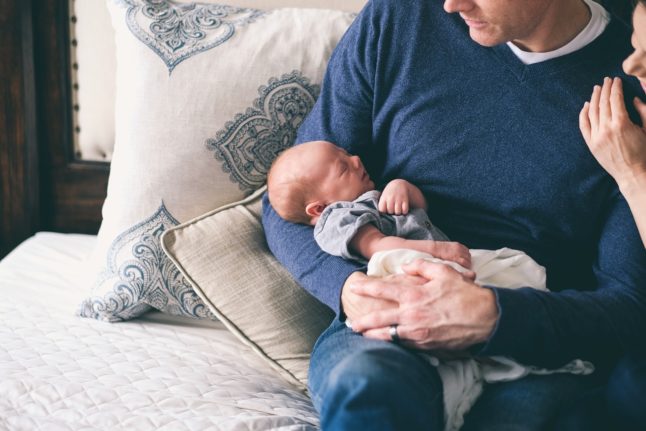In September 2021, almost two thirds of Swiss voters approved a proposal via referendum to allow same-sex marriage in Switzerland.
The law will come into effect from mid-2022 onwards.
READ MORE:UPDATE: Swiss voters say big ‘yes’ to same-sex marriage
Despite this, therapies to “cure” homosexuality remain legal across Switzerland. Similar therapies have been banned in neighbouring Germany and France in recent years.
While actual instances of this therapy are relatively rare, there have been increasing calls for a ban in recent decades.
Why is ‘gay conversion therapy’ still legal in Switzerland?
The answer, as with many questions in Switzerland, comes down to the country’s federal-cantonal system along with conservative voices still maintaining a prominent role in society.
While several cantons including Basel, Bern and Zurich have indicated a desire to stamp out the practice, bans are difficult at a cantonal level.
‘Deviance and morality’: The history of the same-sex marriage movement in Switzerland
Basel City has banned the practice, but authorities in Bern and Zurich believe that such bans can only take place at a federal level.
There is also political opposition to change, particularly among the right-wing Swiss People’s Party (SVP), which remains Switzerland’s largest and most popular political party.
David Trachsel, President of the young SVP, said such therapies should remain legal as they were not mandatory and were only made available to those who sought help.
“Anyone who wants help should be able to get it,” Trachsel told Swiss news outlet 20 Minutes.
Where such therapies were coerced, then Trachsel said bans and further consequences should be implemented.
“If the person takes part in such therapy due to external pressure, then this must be prosecuted.”
Sarah Wyss, from the Social Democrats, said the therapies were outdated.
“To describe homosexuality as ‘curable’ is catastrophic.”
Wyss’ National Council colleague, from the Green Liberal Party, agreed with Wyss.
“I don’t understand what there is to heal. Nobody is treated because they prefer to eat apples than bananas.”
She did however decline to advocate for a complete ban, saying such therapies should only be banned for minors.
“Especially in the case of minors, problems with sexual orientation can actually only be attributed to social conflicts.”
Will these therapies be banned in the future?
As yet, the legal validity of a canton-only ban has not been tested, although Bern and Zurich authorities believe a federal solution is needed.
The most recent effort to ban the therapies for minors only took place in 2016 federally, although the Swiss Federal Council at the time said it saw “no possibility or need for action specifically aimed at protecting minors from therapies against homosexuality”.
Authorities in Basel City have launched an initiative to have the practice banned, which may result in a federal vote on the matter.
READ MORE: Same-sex couples can marry from July 1st in Switzerland
According to the initiative, Basel City authorities want conversion therapy to be banned, those who practice it (i.e. therapists and preachers) to face bans and further consequences to be laid out for those who continue to practice it.
Trachsel said he opposed this plan as it led to a blanket ban on all forms of therapy related to sexuality, which could lead to people being prosecuted despite helping those who asked for assistance.



 Please whitelist us to continue reading.
Please whitelist us to continue reading.
Member comments